Breaking Barriers: Recognize and Empower Women Fisherfolks

A policy dialogue titled "Empowering Women Fisherfolk Communities in Bangladesh" was held on August 11, 2025, at the International Mother Language Institute, Dhaka. Organised by Badabon Sangho, co-hosted by The Daily Star, and co-funded by the European Union and Oxfam Bangladesh under the EWCSA project, the event spotlighted challenges faced by women in fisheries. Speakers stressed revising definitions to officially recognise women fisherfolk, expanding social security, ensuring equal training access, and enacting gender-sensitive policy reforms to strengthen women's roles in sustaining coastal livelihoods.
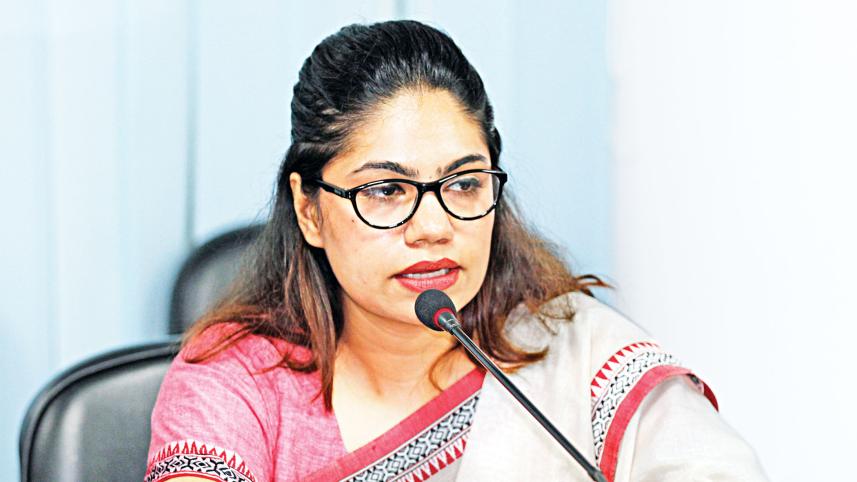
At Badabon Sangho, as a women-led and women's rights organisation, we have been working with fisherfolk communities with a strong focus on advancing the rights of women in fisheries. Our advocacy has centered on ensuring women's recognition in national fisheries policies and programs, especially their right to access fishing licenses, government safety nets, and decision-making spaces that have historically excluded them. This research is to make women fisherfolk's realities visible and to address the policy gaps that perpetuate their marginalization. Specifically, it highlights how women's labour and contributions remain invisible in the National Fisheries Policy and related safety net schemes, despite their critical role in sustaining the sector. Our work is not only about documenting these realities it is also about dialogue and change. That is why we are engaging directly with the Department of Fisheries (DOF) and other key stakeholders, to ensure that women fisherfolk are recognised, included, and fairly supported in policy and practice. It is our vision of justice: women fisherfolk empowered, their rights upheld, and their contribution valued as equal partners in fisheries sectors.
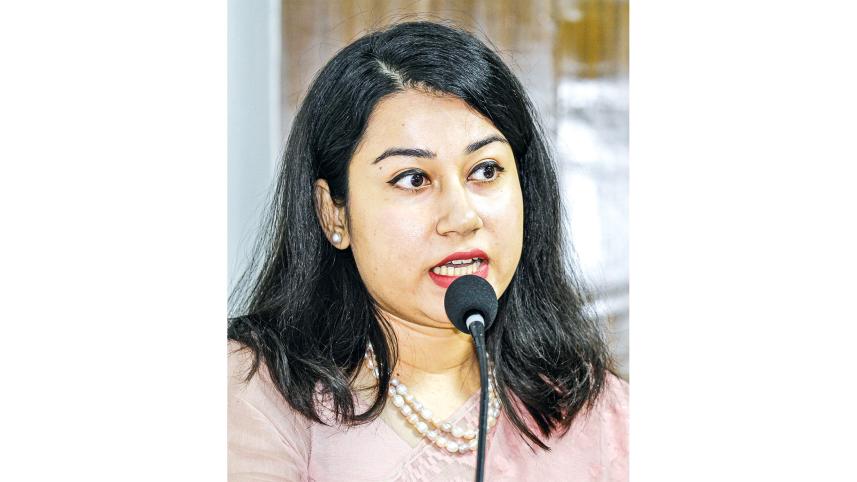
The south-western coastal belt of Bangladesh, particularly Khulna, Bagerhat, and Shatkhira, remains one of the country's most climate-vulnerable regions. Around 20 lakh people depend directly on the Sundarbans for their livelihoods. Increasing salinity and rising water temperatures, exacerbated by climate change, have forced many out of agriculture and into fishing in rivers, canals, and open water bodies. These changes have intensified losses for fisherfolk, with women among the worst affected.
A recent study in Chila Union of Mongla upazila, Bagerhat, where 4,600 of 4,800 families live below the poverty line, examined the condition of women fisherfolk. The mixed-method research surveyed 525 women, alongside focus group discussions and key informant interviews with government officials. It also reviewed existing frameworks such as the Watershed Management Policy, Fishermen Registration Guidelines, and the Labour Act 2006. The findings can be highlighted in three broad themes.
First, gender discrimination in policy and practice. Despite playing vital roles in net mending, fish drying, and marketing, women remain largely invisible in official recognition. About 83% of respondents reported not receiving fisherfolk ID cards, even though 67% had completed registration, often years ago. Among cardholders, 96% are men. Without registration, women are excluded from rations during fishing bans, cooperatives, and water body leases. Overall, 53% of women surveyed said they had never received any form of government support.
Second, climate-induced health and socio-economic vulnerabilities. About 77% of respondents said their livelihoods had been severely affected by climate change, while the rest also acknowledged negative impacts. Prolonged exposure to saline water has caused widespread dermatological problems and reproductive health issues. Six percent of women reported uterine complications. Although the percentage may appear small, local doctors confirmed that the real figure is likely higher. Fisherwomen spend hours in saline water and remain particularly vulnerable, yet affordable treatment remains scarce.
Third, policy gaps and structural exclusion. Even women who completed registration face long delays in receiving cards. Benefits such as the 80kg of rice distributed twice a year during fishing bans overwhelmingly go to men. Unofficial fees of several thousand taka to access safety net schemes further exclude the poorest women.
The study urges urgent reform of the Fisherfolk Registration and Identification Card Guideline (2019) to explicitly recognise women as fishers. It also recommends integrating climate resilience into fisheries policy, expanding safety nets, and ensuring that women, who remain central yet invisible to the fishing economy, receive the recognition and support they deserve.
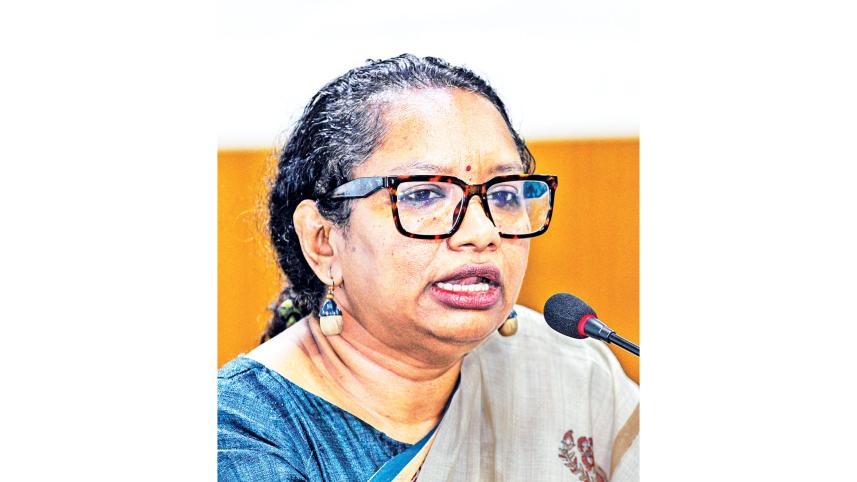
Being a women's rights and women-led organization, mobilising and inspiring women fisherfolk to voice their gendered needs and strategic discrimination. This research is part of that broader campaign to highlight their realities.
The aim, as Badabon Sangho stressed, is to address policy-making gaps that continue to marginalise women in fisheries. Without necessary policy reforms, women will remain excluded from equal opportunities and unable to access critical government safety net programmes. Ensuring recognition, inclusion, and fair support for women fisherfolk is therefore at the heart of the organisation's work and aspiration.
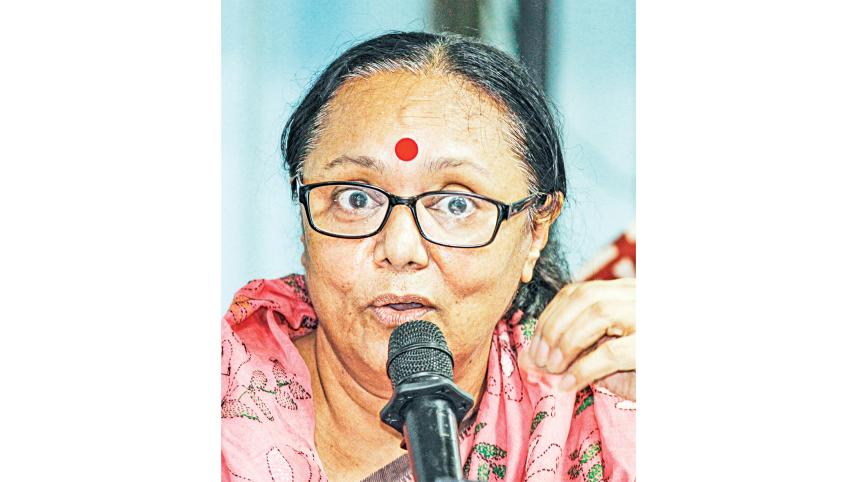
The presentation highlighted several existing policies but did not address a specific women's policy, which participants noted as a limitation. Bangladesh, as a signatory to the CEDAW Convention, has committed to advancing women's rights, yet the absence of such a discussion reflects broader gaps in policy focus. It was observed that terms like "women's rights bill" or "women's empowerment" often remain confined to political rhetoric. As was stressed, macro policy shapes micro policy—without ensuring equal rights at the national level, women continue to face discrimination in every sphere of life. Bangladesh Mahila Parishad has been working to bridge this gap by advocating for equal rights at socio-economic and political levels. While structural adjustments are possible, participants emphasised that a fundamental shift in recognition remains essential.
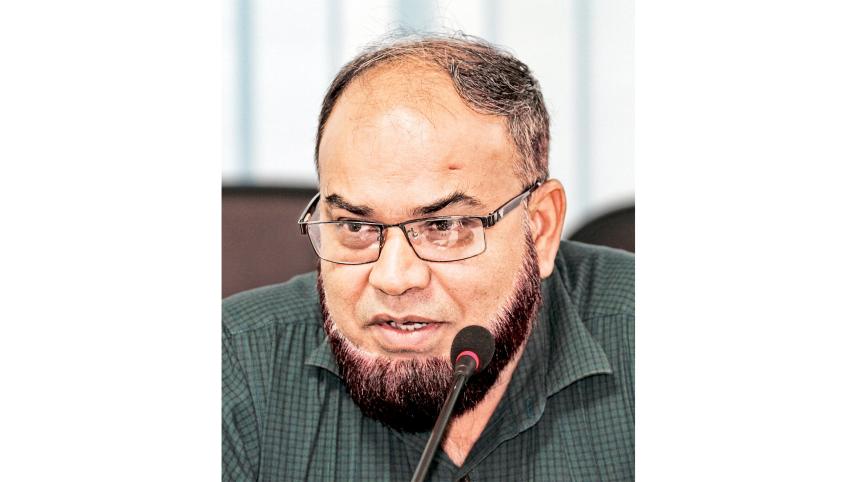
Participants acknowledged the holistic nature of the research but pointed out its limitations, noting that while survey data were collected from three coastal districts, responses came from only one upazila. Broader coverage, they observed, would have reflected more diverse outcomes. A representative from the Department of Fisheries emphasised that the agency works for the betterment of fisherfolk, who are considered key stakeholders. "We have no policy of discrimination in our work," the official said, adding that government training programmes maintain a quota of 25 percent women participants. However, challenges remain at the field level, where women often refrain from raising their voices and are left behind, particularly without identification cards. The official further noted that the fishermen registration update is ongoing and, once completed, women will also receive ID cards. Alongside registration, the department is pursuing alternative employment opportunities and implementing projects specifically targeting women.
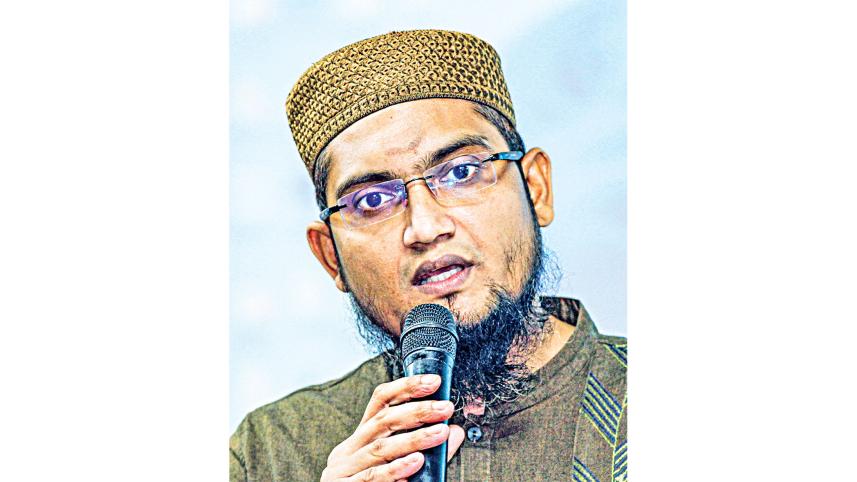
The research examined why identification cards are not issued to female fisherfolk, defining their roles to include fishing, fishnet mending, processing, and marketing. A government representative raised a critical question: even if women received ID cards, how much benefit would they actually gain? The current legal definition of fisherfolk does not recognise all the tasks women perform. As a result, women cannot access Vulnerable Group Feeding (VGF) cards, which are restricted to those engaged in Hilsa harvesting—a role almost exclusively held by men. "An ID card alone is not the solution," the official noted. Policy reforms are now underway, with plans to introduce a new Motshojibi Card that will better reflect women's contributions. The Department of Fisheries Policy 1998 is also being revised in 2025, with a new chapter dedicated to women's empowerment. On adaptation, officials emphasised sustainable rainwater harvesting as a key response to rising salinity. They further expressed concern that women fisherfolk remain excluded from government safety nets, despite the existence of over 130 schemes under local administration.
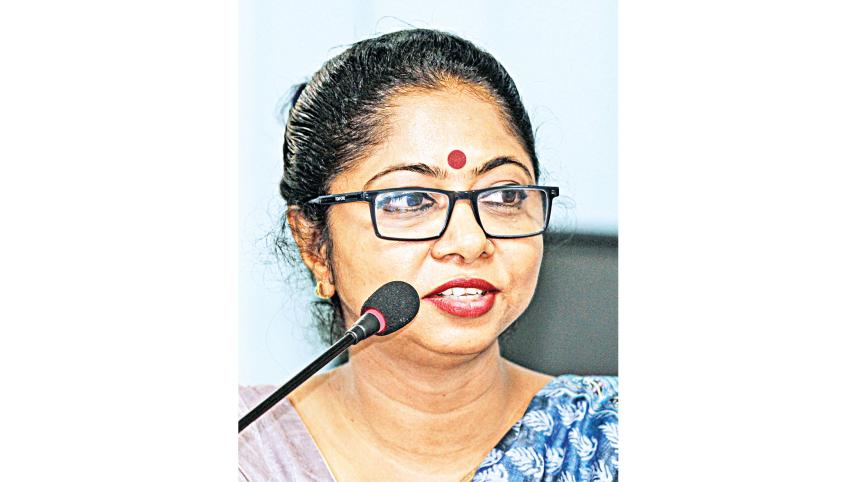
Under the EU co-funded EWCSA project, Oxfam and its partners are working to improve conditions for women workers, with 11 of the 33 partners specifically supporting women fisherfolk. The project has identified diverse roles among fish workers, including shrimp and fish pond workers, with some women serving both as workers and owners. A major challenge highlighted is that when both husband and wife are engaged in fishing, government schemes are often extended only to the husband. Expanding the scope of registration is crucial to ensure female fisherfolk receive their fisher ID cards.
The project emphasises that policy reform is a long-term process. In the short term, EWCSA has brought NGOs, local communities, and government administration together to ensure immediate support. Women deserve access to all facilities available to their male counterparts and recognition as professional fisherfolk. Socio-cultural barriers also persist: many women do not identify as fisherfolk, perceiving the title as degrading, underscoring the need for awareness-building.
Participants stressed that without the ability to voice their rights, women cannot claim them. Strengthening coordination between ministries responsible for fisheries and women's rights, increasing field monitoring, and creating alternative employment opportunities are essential steps to guarantee equitable access to benefits and protection for women fisherfolk.
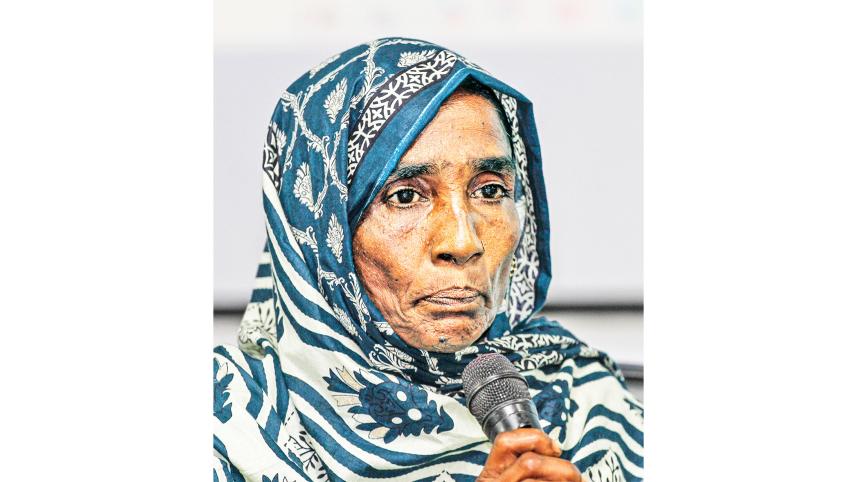
I am a widow, and I do the same fishing work as any man, yet I do not receive any benefits simply because I have no husband. We see others with alternative livelihoods and resources getting support. What did I do wrong not to receive this assistance? We struggle to feed our children, and the government does not even provide us with a freshwater tank. Don't we deserve a tank so our children can have clean water?
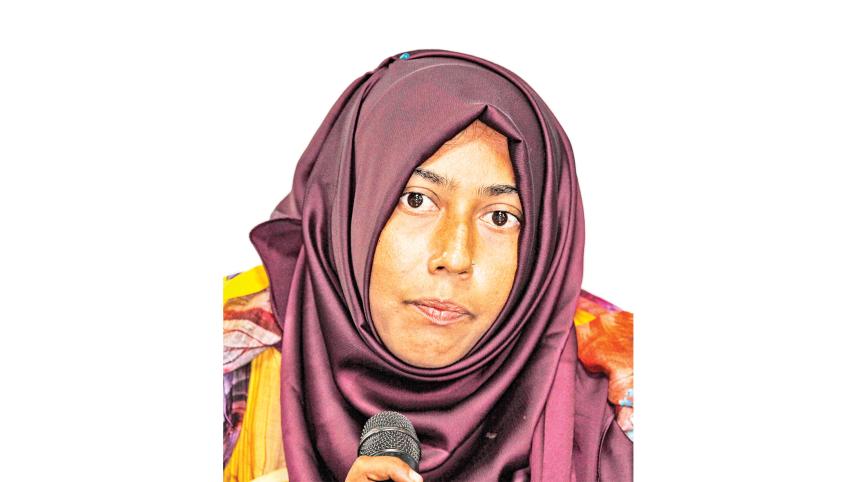
If we go to the union chairman, they demand 3 to 4 thousand BDT for a water tank. We catch fish but can barely afford to send our children to school, so how can we manage this amount? Even for a VGF card, the same fee is required. Widows and people with disabilities also deserve these benefits. We are asked for our identification card every time we go to the Sundarbans and are often mistaken for pirates. An ID card would not only help us access support but also serve as recognition of our hard work.
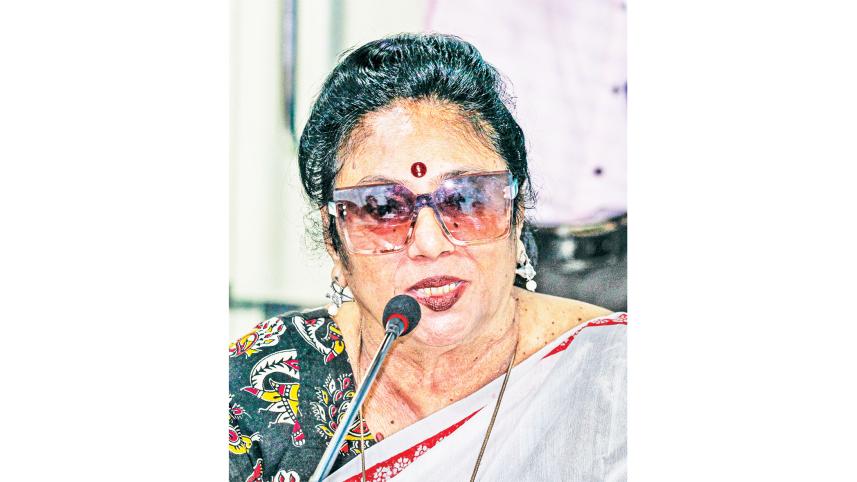
It is often said that there is no discrimination in our policies, which is true. However, if I say the word Jele (fisherman), how many people would first imagine a woman's face? The answer is none. The discrimination lies not in our policies but in our mindset. Until this mindset changes, no amount of policy reform will end the discrimination. Another issue is that policies are often made by people who are not directly affected; the participation of those who will be impacted must be ensured. When policies are drafted, geographical circumstances must be considered, as regions in Bangladesh differ in geography, culture, habitat, and needs. Positive discrimination is necessary to ensure equality. Collaborative efforts on the ground are also required to maximize efficiency. One key recommendation is to recognize marginalized workers officially on paper and to organize them.
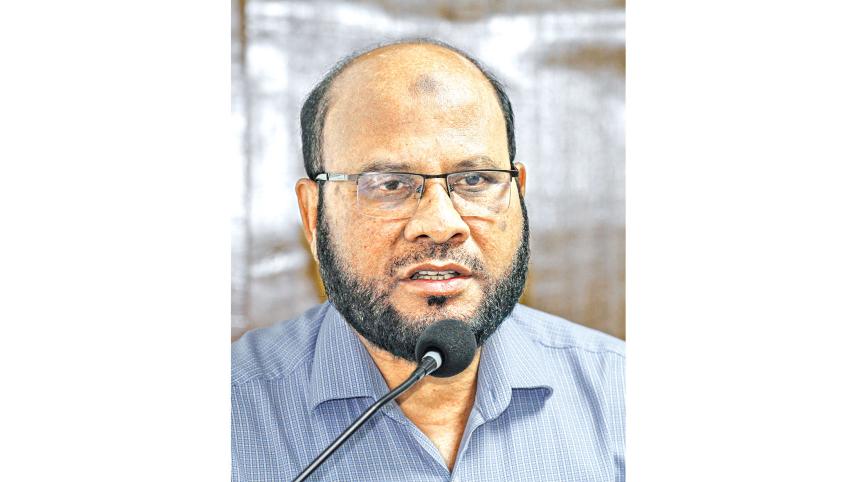
The Department of Fisheries is actively working on policy reforms and will take into account the findings of recent research on women fisherfolk. In the past six months, 37,910 fisherfolk were newly registered, while 23,644 were removed from the list. The department plans to revise the existing definition of 'fisherfolk' to explicitly recognize women as fisherfolk, distinct from the traditionally male-centered notion of fishermen, by officially acknowledging their roles in catching fish, net mending, processing, and marketing. The fisheries sector contributes 2.53% to Bangladesh's GDP, with an estimated 12–14 lakh women involved directly or indirectly. Field-level training programmes now require at least 30% women participation, and the department has successfully involved 33%. Regarding social security, officials emphasised expanding the scope and benefits of VGF cards, with plans to provide 50 kg of rice per month during fishing ban periods.
Despite their significant contributions, women still face unequal pay and social barriers that limit recognition. Officials stressed that women must raise their voices about their struggles. The ministry will inform relevant authorities, including the Coast Guard and Navy, about the reforms and daily challenges of fisherfolk. A new bank loan system, Motsho o Prani Shompod Bank, is proposed to reduce dependence on high-interest informal lenders, but the primary focus remains ensuring all fisherfolk, particularly women, receive identification cards for recognition and access to government support.




 For all latest news, follow The Daily Star's Google News channel.
For all latest news, follow The Daily Star's Google News channel.
Comments